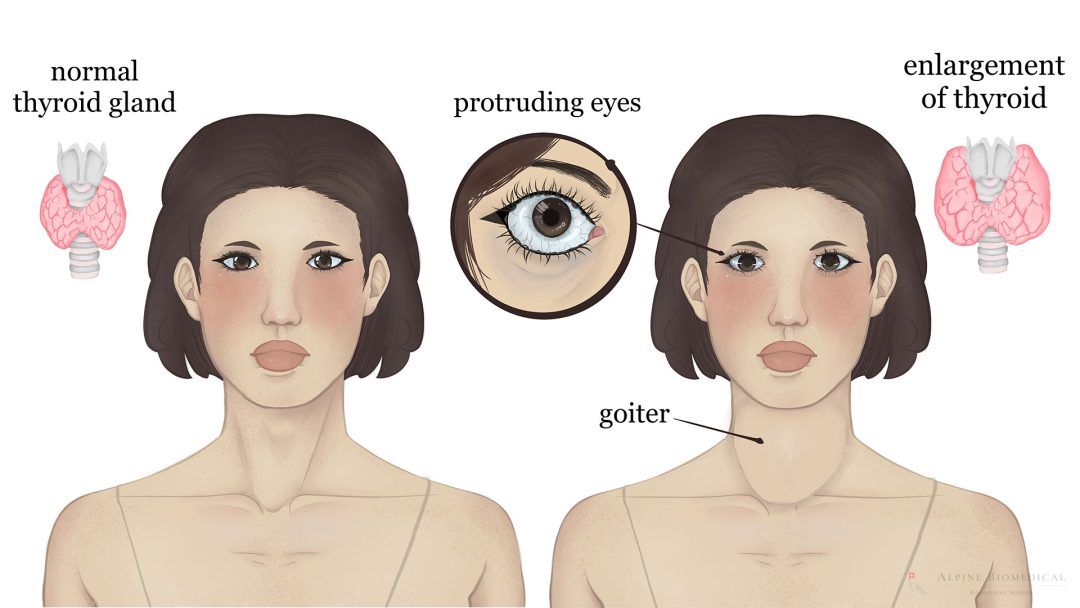Graves' Disease

Graves’ disease is an autoimmune disease in which antibodies are produced against the TSH receptors of the thyroid gland. This leads to excessive production of thyroid hormones, known as hyperthyroidism. Graves’ disease shows symptoms such as weight loss, excessive sweating, palpitations, bulging eyes, mood swings and sleep disorders.
Causes of Graves' Disease
The exact causes of Graves’ disease are not fully understood, but several factors are thought to play a role.
The following causes are associated with Graves’ Disease:
- Infections e.g. EBV
- Environmental factors, with mercury and lead in particular being considered potential triggers
- Genetic factors
Diagnosis and Treatment of Graves' Disease
The diagnosis of Graves’ disease is based on a thorough medical history, physical examination, laboratory tests and, if necessary, imaging procedures such as ultrasound diagnostics.
Graves’ disease can be treated with medication and complementary therapies. Antithyroid drugs and beta-blockers are used to regulate thyroid activity and alleviate symptoms. In some cases, radioiodine therapy may also be considered.
A balanced supply of vitamin D, other essential vitamins and minerals such as selenium and magnesium is important, as deficiencies can contribute to the development and progression of the disease. Particular attention should be paid to omega-3 fatty acids, as these have an anti-inflammatory effect. An orthomolecular specialist can take a holistic view of the supply of vital substances.
A healthy gut plays a crucial role, as an imbalance in the intestinal flora can lead to autoimmune diseases. Leaky gut syndrome in particular is involved in its development.
Abstinence from nicotine is also of great importance, as smoking can increase the severity of symptoms and reduce the success of treatment. In particular, swollen and protruding eyes (endocrine orbitopathy) are more common in smokers.
Dr. med. Karsten Ostermann M.A.
Comprehensive treatment always requires an individual approach from an experienced therapist. We are here for you.

Further information
The information listed contains relevant topics and serves to improve understanding.